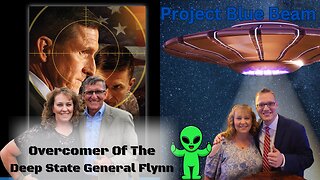Cosmos: A New Perspective on Life
Cosmos: A New Perspective on Life
Cosmos: A New Perspective on Life explores the many ways in which the universe affects our lives. From the smallest particles to the largest structures, everything in the cosmos is interconnected. By understanding these connections, we can gain a new perspective on life and our place in the universe. Photo by Kliks on Pexels Main point.
Point beneath it.
The universe is a big place. It’s so big, in fact, that it’s hard to wrap our minds around it. But what if we could? What if we could see the universe from a new perspective?
That’s what Cosmos: A New...
https://finetimer.site/cosmos-a-new-perspective-on-life/
Cosmos: A New Perspective on Life explores the many ways in which the universe affects our lives. From the smallest particles to the largest structures, everything in the cosmos is interconnected. By understanding these connections, we can gain a new perspective on life and our place in the universe. Photo by Kliks on Pexels Main point.
Point beneath it.
The universe is a big place. It’s so big, in fact, that it’s hard to wrap our minds around it. But what if we could? What if we could see the universe from a new perspective?
That’s what Cosmos: A New Perspective on Life seeks to do. The book, written by Neil deGrasse Tyson and published by National Geographic, takes readers on a journey through the universe, exploring everything from the smallest particles to the largest galaxies. Along the way, Tyson challenges us to think about life and our place in the cosmos in a new way.
Cosmos is an engaging and thought-provoking read that will leave you with a new appreciation for life and all that exists in the universe.
Main point.
Point beneath it.
In the vastness of the cosmos, our planet Earth seems pretty insignificant. And yet, it is the only place we know of where life exists. How did this happen?
Some scientists believe that life on Earth was seeded by comets or meteorites carrying organic materials from other parts of the universe. Others believe that the building blocks of life were created spontaneously from inorganic matter, through a process called abiogenesis.
Either way, it is clear that the origin of life on Earth is a mystery that continues to baffle and fascinate scientists. And as we learn more about our place in the universe, we may come to see ourselves and our planet in a whole new light.
Main point.
Point beneath it.
In recent years, there has been a growing interest in the study of cosmology and its potential implications for our understanding of life. This has led to a new perspective on life, which views the universe as a whole rather than as isolated parts.
This perspective has been termed “cosmological naturalism” and it is based on the idea that the universe is a single system that is governed by laws of nature. This view of reality provides a more holistic understanding of life and its place in the cosmos.
There are many benefits to this new perspective. For one, it allows us to see the interconnectedness of all things. It also provides us with a more accurate picture of the universe, which can help us to make better decisions about our lives and our place in it.
One area where cosmological naturalism has had a significant impact is in our understanding of human evolution. Traditionally, evolutionary theory has focused on competition and survival of the fittest as the main drivers of change. However, this view does not take into account the fact that we are part of a larger system.
Cosmological naturalism provides a different perspective on human evolution, one that emphasizes cooperation and interdependence. This view suggests that we have evolved not only because we are good at competing, but also because we are good at working together. This is an important distinction that can help us to understand our place in the world and how we can best contribute to its future.
In conclusion, the Cosmos provides a new perspective on life that can help us to understand and appreciate the world around us. The main points of this perspective are that the universe is infinite and eternal, that everything is connected, and that there is no such thing as time. These concepts can be difficult to grasp, but they can have a profound impact on our lives if we take the time to consider them. If you’re interested in learning more about the Cosmos, I encourage you to check out some of the resources I’ve listed below. And always remember: there’s more to life than what we...
-
 3:58
3:58
FineTimer
1 year agoTheHotBit Exchange – Get Your Trading Tips from the Pros!
995 -
 LIVE
LIVE
Right Side Broadcasting Network
5 days agoLIVE REPLAY: President Trump Holds a Rally in Freeland, Michigan - 5/1/24
8,564 watching -
 LIVE
LIVE
Michael Feyrer Jr
2 hours agoGet Your Live Streaming Questions Answered! LIVE
167 watching -
 LIVE
LIVE
Fresh and Fit
4 hours agoSulaiman Ahmed Meets Fresh&Fit
9,744 watching -
 1:54:22
1:54:22
The Quartering
4 hours agoNew Laws Infringe On Speech, O' Keefe CIA Expose, Campus Crackdown & Trump Trial
22.2K14 -
 1:09:33
1:09:33
Dr. Drew
8 hours agoMike Lindell: From Cocaine Addiction Recovery To Selling 46 Million MyPillows, And Why He Keeps Fighting For "Election Integrity" – Ask Dr. Drew
25.8K10 -
 1:37:00
1:37:00
2 MIKES LIVE
5 hours ago#60 2ML News Breakdown Wednesday with special guest Mike Zeigler!
4.1K1 -
 59:56
59:56
The Amber May Show
6 hours agoGeneral Michael Flynn | Overcomer Of The Deep State | Conspiracy Theory Project Blue Beam
3.62K -
 LIVE
LIVE
Quite Frankly
7 hours ago"Declassified Kona Blue, Kandahar Giant, Open Lines" ft Timothy Alberino 5/1/24
1,067 watching -
 1:09:09
1:09:09
vivafrei
5 hours agoSerial Protestor Deana Sherif ARRESTED & DENIED BAIL! More Court Madness in Canada! Viva Frei Live
37.7K53